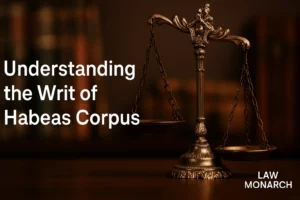Marriage builds a deep connection between two people. It rests on love, loyalty, and shared goals. That trust grows over time through effort and support. When someone from outside steps in and damages that bond, it can cause deep emotional pain. In some states, the law recognizes this harm and allows action.
This law is known as homewrecker law, but courts call it alienation of affection. It lets one spouse sue a third party who played a part in breaking the marriage. This legal claim is not common across the country. Only a few states still accept these cases in court.
The focus of this law is not on infidelity alone. The court looks at the actions of the outsider. It checks whether those actions caused emotional harm that led to the end of the marriage. The goal is not revenge. It is about holding someone responsible when they cross personal boundaries and harm another person’s home.
This article walks you through what homewrecker law means, where it applies, how it works, and what to expect if you file a case. It also gives insight into how courts view these claims and what they look for before deciding a case.
What Is Homewrecker Law?
Homewrecker law gives a person the right to sue someone who interferes in their marriage. It is a civil case, not a criminal one. That means the goal is to receive money for the damage, not to put someone in jail. The damage must be real, emotional, and caused directly by the actions of the third person.
The law is about emotional loss. It targets the harm done to the bond between spouses. This harm does not need to include sex or physical contact. It can be emotional closeness, long conversations, or manipulation. The court wants to see that the third person played a clear role in ending the love between two married people.
If a spouse leaves their partner, the court looks deeper. It asks why. If an outsider encouraged or supported the breakup, they may face legal action. The person suing must show more than feelings. The court wants solid proof of damage and intent.
States That Recognize These Claims
Most states in the U.S. no longer allow homewrecker lawsuits. They believe marriage problems are private. They do not want courts to judge personal relationships. But a small number of states still accept these claims and allow people to sue.
In North Carolina, these cases happen more often. Courts there have heard many homewrecker lawsuits. Some people have won large money awards. In other states, judges handle the cases more cautiously. They may demand stronger proof or limit the damages.
If you live outside these states, you cannot file a homewrecker claim. The court will reject it, even if you feel hurt or betrayed. The law must exist in your state to bring this type of case.
Proof Required in Court
To win a homewrecker case, you must bring strong and clear proof. The court will not rely on anger, gossip, or vague details. It needs real facts and evidence that the marriage was healthy before someone stepped in and caused harm.
You must prove that your marriage had love and trust. You must also prove that a third person did something to break that connection. The court looks at patterns, not just one moment. If the outsider sent gifts, met in secret, or made plans with your spouse, these could count as interference.
You must also show that the outsider knew they were doing wrong. If they acted without care for your relationship, the court may see that as intentional harm. The court wants to see how their actions led to the breakdown of your marriage. You must draw that line clearly and with facts.
The last part is showing how your marriage ended. The court needs to see that the outsider’s actions came before the separation. You can use messages, photos, phone records, and even witness statements. The stronger your evidence, the better your case.
What You May Receive in Court
In a homewrecker lawsuit, the goal is not to take someone to jail. The goal is financial compensation. If you win, the court may order the outsider to pay you money for the emotional harm they caused. This helps cover pain, suffering, and other losses.
You may receive money for mental emotional distress, shame, embarrassment, or the loss of love and support. Some courts also award money to punish extreme behavior. If the outsider acted in a cruel or reckless way, the judge may increase the amount.
In rare cases, people win very large awards. One case in North Carolina ended with a judgment of over a million dollars. But those are not common. Most cases settle for smaller amounts based on the harm done and the strength of the proof.
If you want to file a claim, speak to a lawyer first. They will tell you what kind of outcome to expect in your state. They will also help you understand the risks and benefits of going to court.
Does It Matter If the Spouse Left Willingly?
Many people ask if they can sue even when their spouse chose to leave. The answer depends on what the third person did. If that person caused the breakup or pushed it to happen, the court may still hold them responsible. You must show a clear link between their actions and the end of your marriage.
The court also looks at outside influence. Your spouse may have made the final choice, but someone else may have caused that choice. If a person lied, created doubt, or encouraged your spouse to walk away, that may support a legal claim. The harm must be real and proven with facts.
Courts understand that people make their own decisions. But they also see how others can change those decisions through pressure. If someone kept contacting your spouse, caused stress, or pulled them away from the marriage, the court may see that as damage.
The focus stays on the outsider. If their actions broke the trust in your marriage, they may still face the legal result, even if your spouse played a part in leaving.
Is It Worth Filing This Lawsuit?
This kind of lawsuit is not simple. It takes time, energy, and a clear plan. You must be ready to tell your story in court. You must also be ready to face hard truths about your relationship and the third person’s role in it.
Some people choose to file to protect their name. Others want closure or justice. But you must think beyond emotions. Lawsuits can open old wounds. They may also bring more stress. You must ask yourself if this step brings healing or more pain.
If your case is strong and the facts are clear, the court may help you find peace and recovery. If the case is weak or based only on emotion, you may lose money and time. A lawyer can guide you through this and help you decide what’s right for you.
Filing this lawsuit is a serious choice. Make sure you feel confident and well-informed before you start. Know your goals and prepare for the legal process ahead.
Critics and Supporters
Many people do not agree with homewrecker laws. Critics say that love and marriage are private matters. They argue a marriage can only fall apart if one of the spouses allows it to happen. They argue that blame should not lead to lawsuits.
Others say these lawsuits create more pain. They feel that dragging a private issue into public court does more harm than good. They worry it turns grief into anger and delays the healing process.
Supporters of the law have a different view. They believe the law helps people stand up for themselves. If someone crossed a line and damaged a family, they should face the result. The law gives victims a chance to speak out and seek justice.
Courts try to balance both views. They do not accept every case. But when the facts show real harm, they are willing to act. Each claim must stand on proof, not pain alone.
How to Begin a Case
If you plan to file a case, start by speaking with a lawyer. Choose someone who understands civil claims or family law in your state. Not every lawyer handles these cases, so ask clear questions before you decide.
A good lawyer will review your story and check the facts. They may ask about dates, calls, photos, or messages. If your case has merit, they will help you take the next legal step and file it in the right court.
Courts want truth, not guesswork. You must be honest and ready to speak clearly. Your lawyer will help you prepare and answer questions the right way. Keep your focus on justice, not on anger or blame.
Final Words
Homewrecker law gives people a legal option when someone from outside ruins a marriage. It allows the harmed spouse to seek justice when emotional damage comes from a third party. In states where this law still stands, it offers a voice to those who feel betrayed. But the court demands real proof. Strong feelings alone are not enough to win.
If another person caused serious damage to your marriage, you may have a case. Do not rush into court without knowing your rights. Speak with a lawyer who understands this law in your state. Make sure your evidence shows how the outsider’s actions led to the end of your marriage.
This law cannot change the past. It cannot heal every wound. But it can help you gain peace and accountability. In the right situation, it gives you a way to move forward with strength and dignity.
Learn how long a civil lawsuit takes to settle before filing your claim.
Common Questions
Q. Can someone be sued for ruining a marriage?
A person may face a lawsuit if their actions caused a marriage to end. The law allows this in certain states. The court needs proof that the outsider directly influenced the breakup.
Q. Is proof of cheating required in a homewrecker case?
Physical cheating is not always required. Emotional ties, constant contact, or actions that damaged the marriage may be enough. The court looks at the effect of the outsider’s behavior.
Q. Do all states allow this type of lawsuit?
Only a few states still recognize this law. Places like North Carolina, Utah, and Mississippi allow these claims. Most other states have removed the option to sue for emotional harm in marriage.
Q. What kind of evidence helps support a claim?
Messages, emails, photos, and witness accounts can help. The court wants clear facts that show how the outsider caused the loss of love or trust between spouses.
Q. Can the case still move forward if the spouse left on their own?
Courts still review the role of the third person. If that person pushed or influenced the decision, they may still be at fault. The key is showing how their actions led to the breakup.
Disclaimer:
This article is for general information only. It does not give legal advice or create an attorney-client relationship. Laws may vary by state and can change over time. Always speak with a licensed attorney in your area before taking legal action.




